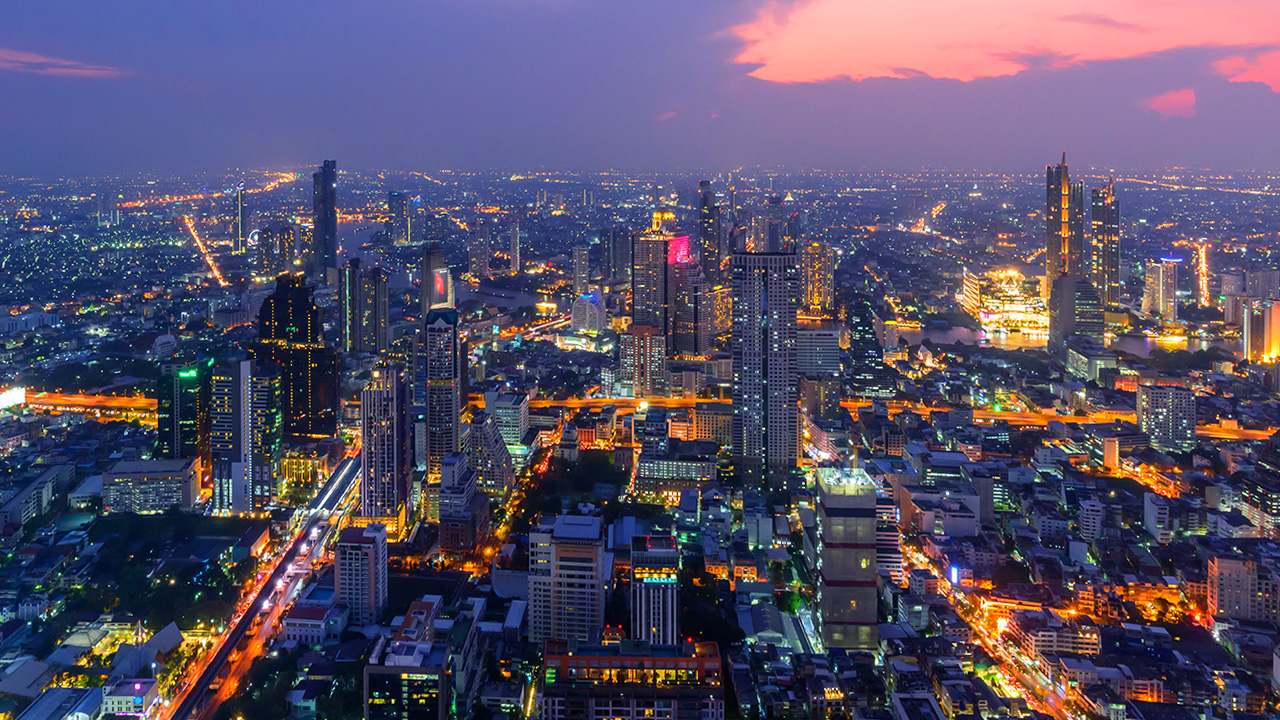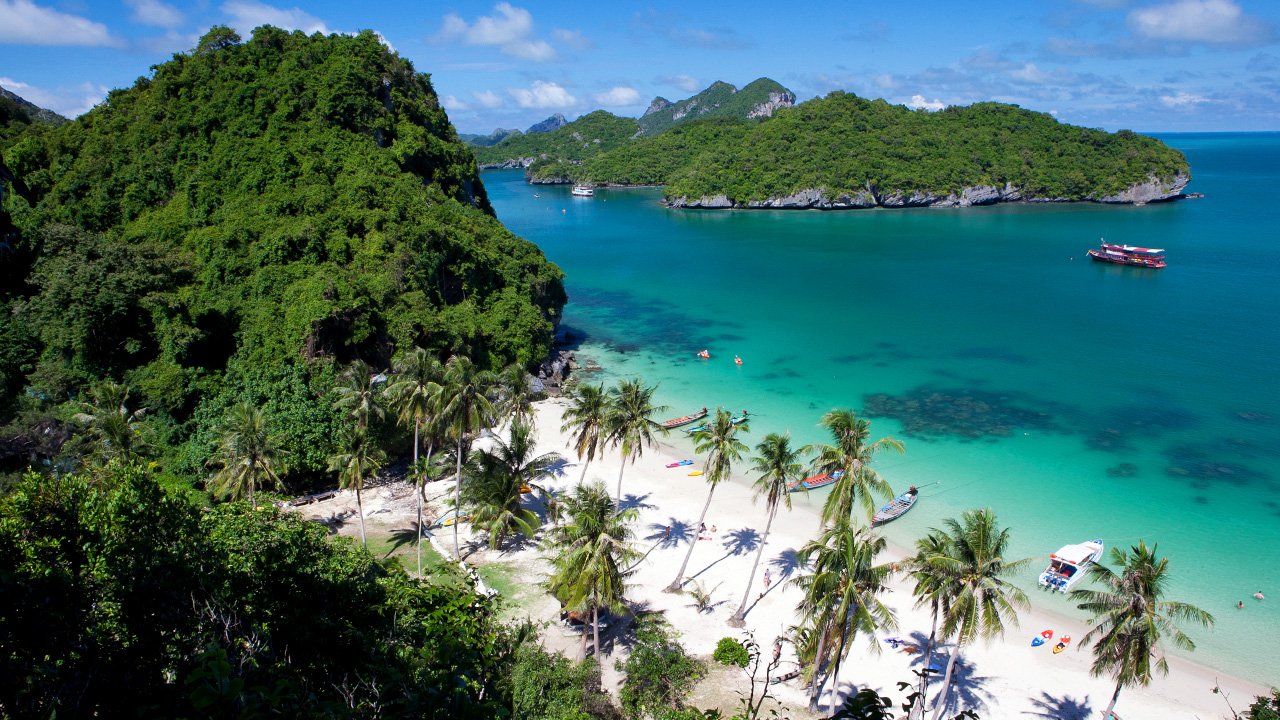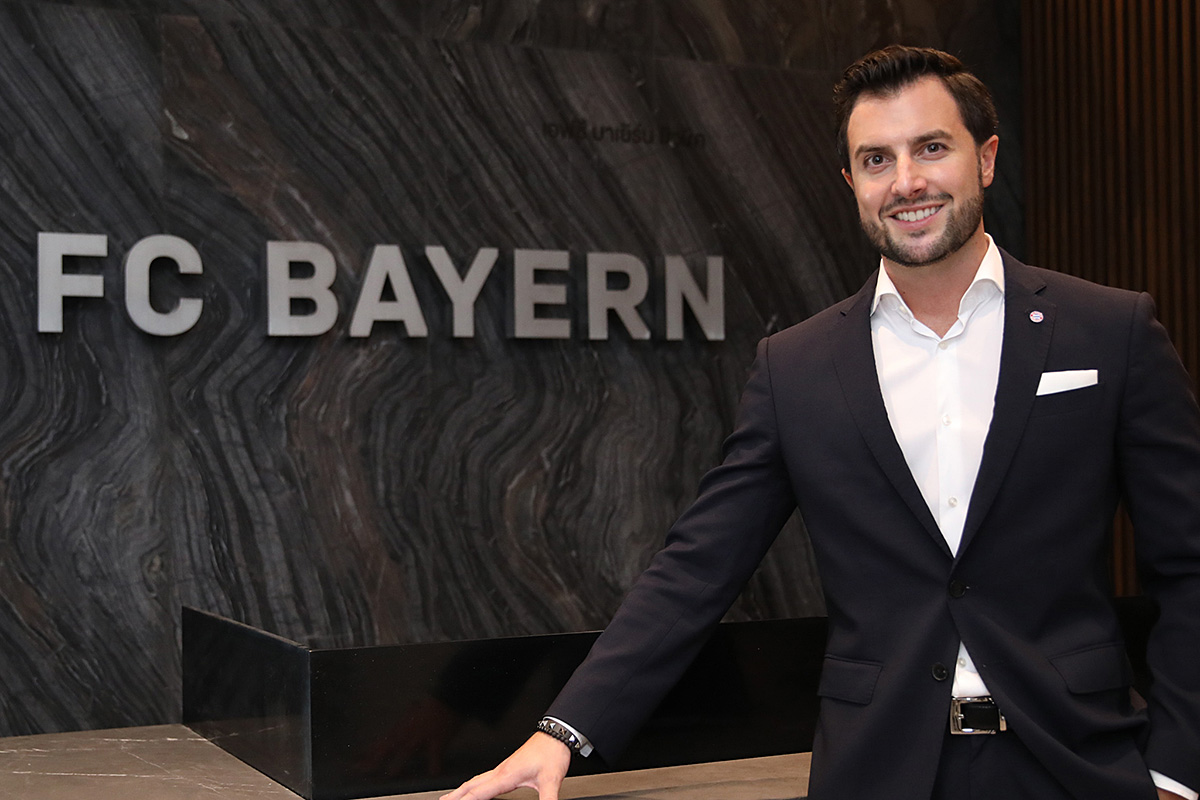Making Thailand Your Home: New Visa Tempts 'High-Potential Foreigners'
Maximilian Haschke recently celebrated his first anniversary living and working in Thailand. The German national relocated to Bangkok to open the first office in Southeast Asia for a major European football team.
The city of more than 10 million people has long been regarded as one of the world’s top tourist destinations – a buzzing, high-energy gateway to the rest of Asia. But for Haschke, its sheer diversity also makes it an enticing place to stay in the longer term.
“I live in the old part of the city, close to the Chao Phraya River. It’s very rich in culture and a little more calm and relaxed,” he said. “Whereas my office in the Ratchaprasong area is in the middle of the business district, which is vibrant and fast-paced. So I’m pretty happy to have both sides of Bangkok.”
Thailand, which sits at the heart of the 10-nation ASEAN common market and its 600 million consumers,[1] also makes sense economically for foreign companies and expatriates looking to Asia for opportunities. It’s a digitally connected economy with highly skilled personnel, and also boasts world-class transport infrastructure that brings the wider region within easy reach.
Business-Friendly Support
For Haschke’s employer, German football giant FC Bayern Munich, Thailand presented an ideal opportunity to grow its brand, to identify commercial opportunities and partnerships, to help to develop the sport at grassroots level, and to appeal to its global fanbase. But the final decision to open its third international office after New York and Shanghai came after a year-long study.
“We looked into the typical macro and microeconomic circumstances, the ease of doing business, and the potential of the region,” explained Haschke. “We discovered that it is one of the fastest growing regions in the world. It’s very young and dynamic, which for us as a football club is extremely interesting as we try to connect with younger generations."
As FC Bayern’s senior representative in the Southeast Asia, Haschke has been impressed with the support both individuals and organizations receive to set up in Thailand – even before they land.
“In addition to the German Chamber of Commerce, the Thailand Board of Investment is present all over the world. This helped us to get to know what’s needed, who to talk to, and what you have to bring in advance,” he said. “So when you’ve done the homework at home, it eases the process here. You have the network and people to guide you when you arrive.”
Incentivized to Stay For Longer
Meanwhile, the Thai government recently announced a new Long-Term Resident (LTR) visa program, which will provide a range of benefits aimed at enhancing the country’s attractiveness for “high-potential” foreigners like Haschke.

The visa will be available to four categories of foreign applicants: “Wealthy Global Citizens” holding at least $1 million in assets; “Wealthy Pensioners” aged 50 years and above who have an annual or stable income; “Work-from-Thailand Professionals” employed by well-established overseas companies; and “Highly skilled Professionals” from targeted industries such as digital, biotechnology, smart electronics and robotics, human resource development, and research and development for targeted industry.
Among the incentives: a renewable 10-year visa giving the right to work; a tax exemption for overseas incomes, as well as a 17% personal tax rate for high-skilled individuals; fast-track immigration and facilitation services at all international airports across Thailand; and an exemption for business leaders from the requirement to hire four Thai nationals for every foreign employee.[2]
Thailand hopes that these kinds of residency solutions will provide a boost to its economy – Southeast Asia’s second biggest – which continues to recover from the pandemic despite global headwinds. Buoyed by a stable financial system and declining unemployment, its economy looks set to expand by 2.9% in 2022,[3] before gathering pace next year – making it an ideal investment opportunity.
Exploring Thailand’s Diversity
Away from the office, Thailand has been a hugely positive experience for Haschke in terms of lifestyle, from the endless number of exciting new restaurants springing up across the capital, to the numerous golf courses less than an hour away that offer a few hours of respite from the bustle of the city.
Haschke was particularly effusive about the diversity of Thailand as a whole, and how Bangkok is the perfect platform for exploring the rest of the country with ease.

“You can hop on a plane and one hour later you’re on a beautiful island like Koh Samui or Phuket. And on the other side, you’re one hour away from the middle of the jungle in the north, and cities like Chiang Mai and Chiang Rai,” he said.
This year, Thailand was ranked the 8th best destination to live globally in a survey of expatriates.[4] The general cost of living, the quality and affordability of housing, and its overall friendliness were considered the main attractions.
“The friendliness, the openness, the typical Thai smile everyone is talking about – it really has a meaning,” said Haschke. “The Thai people enjoy life, no matter what they have.
“But beyond the culture, you can see the country is open to disrupt. They bring pragmatic solutions to problems, when in other regions of the world it may take longer to get from the issue at hand to finding the right solution. And that makes it a very nice environment to be in.”
Sources:

